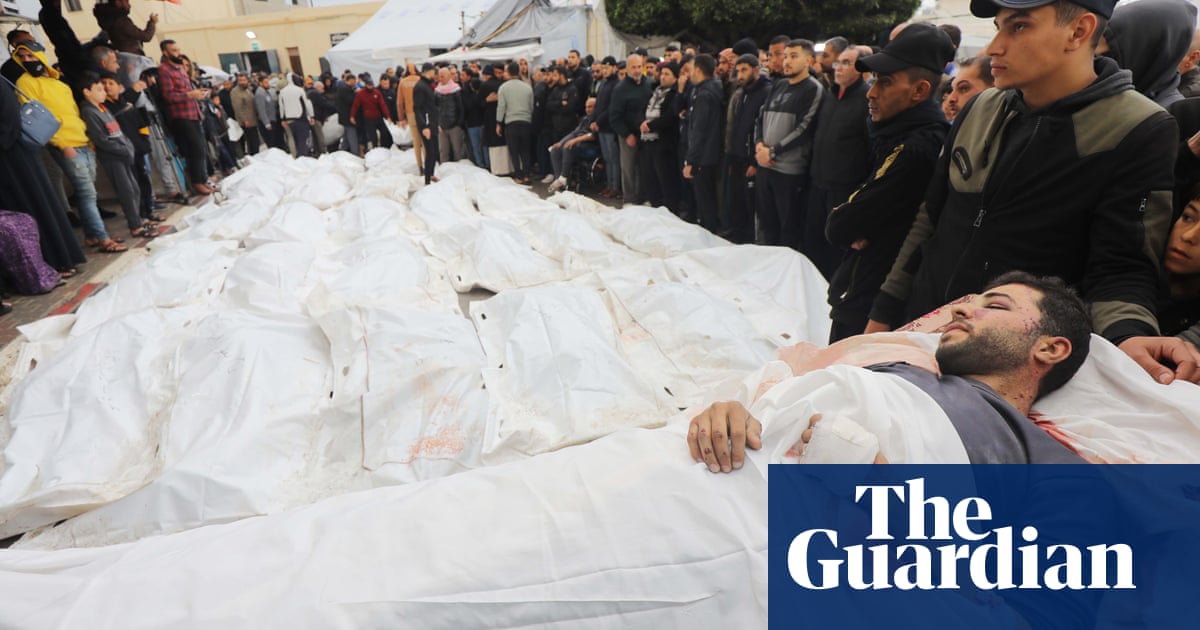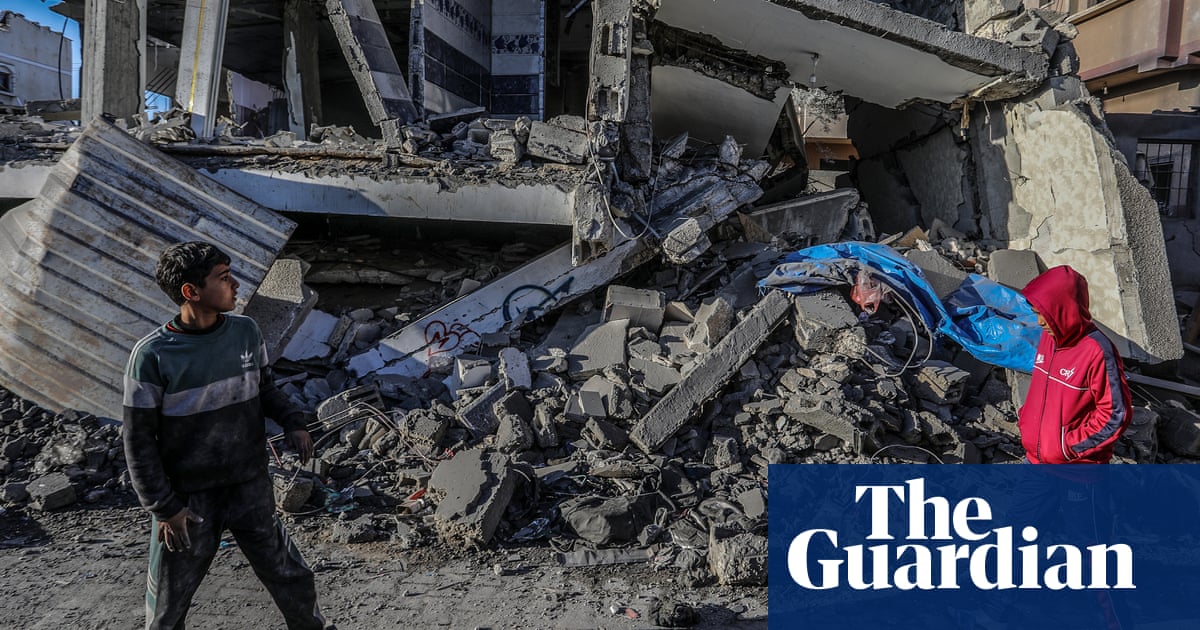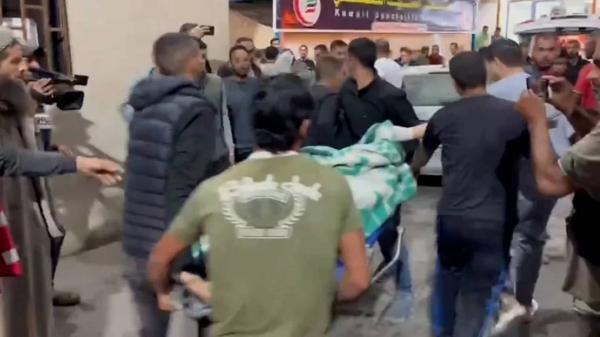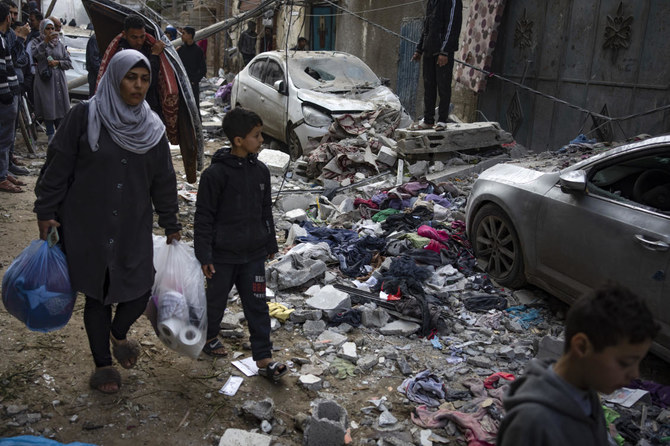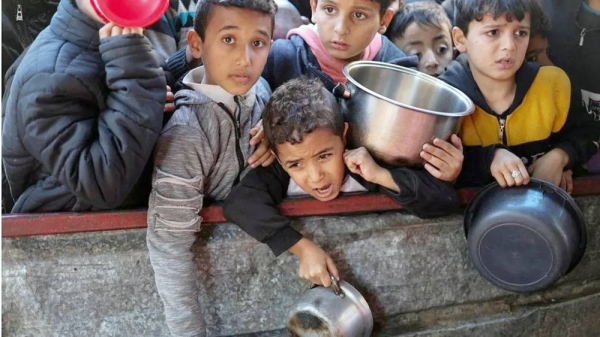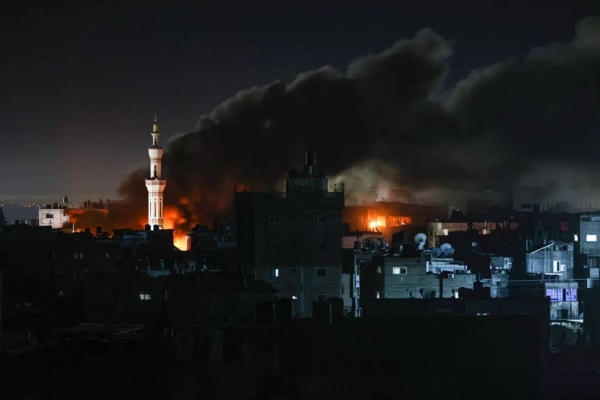
Dozens of people, including children, have been killed as “extremely intense” Israeli airstrikes and shelling pounded multiple locations in Rafah overnight Monday, according to the Palestine Red Crescent Society, as international alarm mounts over Israel’s planned ground offensive in the southern Gazan city.
More than 100 people were killed due to Israeli airstrikes as warplanes targeted different areas of the city and helicopters fired machine guns along the border areas, the PRCS said early Monday.
CNN cannot independently verify the number of casualties on the ground.
There are fears the death toll could rise further as the PRCS said people remain trapped under the rubble and there is still a heavy presence of warplanes in the skies over Rafah.
The director of Abu Yousef Al-Najjar Hospital said medical facilities in Rafah “cannot handle the large number of injuries due to the Israeli occupation’s bombardment.”
Footage obtained by CNN showed a chaotic scene inside Rafah’s Al Kuwaiti hospital, with medics trying to resuscitate a motionless child in one scene and another showing doctors treating a wounded man on the hospital floor. In another video a woman was inconsolable as she held a child’s body wrapped in white cloth.
At least two mosques and around a dozen homes were targeted in the strikes, the Rafah municipality said Monday.
The Israeli military confirmed it conducted a “series of strikes” on what it said were targets in the Shaboura area of Rafah and that two Israeli hostages were rescued in a “special operation”.
In a joint statement, the Israel Defense Forces, Israel Security Agency Shin Bet and Police identified the hostages as Fernando Simon Marman, 60, and Louis Har, 70, and said they were kidnapped by Hamas on October 7 from Kibbutz Nir Yitzhak.
“They are both in good medical condition and were transferred for medical examination at the Sheba Tel Hashomer hospital,” the statement said.
IDF spokesperson Danial Hagari told reporters the “covert operation” to secure the hostages began at 1:49 a.m. local time, with the airstrikes on Rafah launching a minute later.
In a statement Monday, Hamas condemned what it said was a “horrific massacre” by Israel against civilians in Rafah.
The Israeli military’s attack on Rafah “and its horrific massacres against defenseless civilians and displaced children, women, and the elderly... is considered a continuation of the genocidal war and the forced displacement attempts it is waging against our Palestinian people,” Hamas said.
More than 1.3 million people — more than half of Gaza’s population — is seeking refuge in Rafah, with the majority of people displaced from other parts of the besieged enclave crammed into a sprawling tent city.
There are severe shortages of food, water, medicine and shelter, and the city has been described as a “pressure cooker of despair” by the UN Office for the Coordination of Humanitarian Affairs (OCHA) spokesperson, Jens Laerke.
Rafah has experienced aerial assaults from Israeli forces for months, but Monday’s bombardment has heightened fears that an anticipated Israeli ground campaign would result in a bloodbath, with those trapped in the overcrowded city having no remaining escape route.
Israeli Prime Minister Benjamin Netanyahu on Friday directed the country’s military to plan for the “evacuation of the population” from Rafah after saying that the IDF would “soon go into Rafah, Hamas’s last bastion.”
His comments set off a firestorm of criticism, with Human Rights Watch saying forced displacement of Palestinians in Rafah would have “catastrophic consequences.” The United Nations said it was “extremely worried about the fate of civilians in Rafah,” according to UN spokesperson Stéphane Dujarric, who said people “need to be protected.”
A Hamas leadership source said that an assault on Rafah would mean the “destruction” of negotiations that have been ongoing for weeks, according to Hamas-run Al-Aqsa TV.
And Saudi Arabia, Qatar, Egypt and the United Kingdom joined a growing list of countries to express concern over Israel’s planned offensive.
Saudi Arabia’s foreign ministry warned of “very serious repercussions of storming and targeting” the city, while Qatar — a key mediator in talks between Israel and Hamas — on Sunday urged the UN’s Security Council to “prevent” Israel from committing what it described as “genocide” and warned of a “humanitarian catastrophe in the city.”
In a call with Netanyahu on Sunday, US President Joe Biden “reaffirmed” his stance the IDF should not proceed with the military operation in Rafah “without a credible and executable plan” to ensure the safety of civilians, according to a White House release.
But Netanyahu has brushed off the criticism, saying that telling Israel not to enter the southern Gazan city was like telling the country to lose the war.
“Victory is within reach. We’re going to do it. We’re going to get the remaining Hamas terrorist battalions in Rafah, which is the last bastion, but we’re going to do it,” Netanyahu told ABC News in an interview Sunday.
An Israeli official told CNN that Netanyahu wants the Rafah operation completed by the start of Ramadan, expected to begin in early March
Netanyahu said Israel would provide safe passage for the civilian population but did not provide details on how that would happen. “We’re working out a detailed plan,” he said.
Many Palestinians fleeing Israeli bombs and shelling have trekked through the enclave and taken refuge in the city as the IDF’s campaign has moved south through Gaza.
It has rapidly become home to a huge population of displaced Palestinians. Satellite images showed last week how a tent city in Rafah has swelled in size in just a few weeks, as more Gazans descend on the area to escape the IDF’s campaign.
It is unclear where next they could go; the city borders Egypt to the south, but the border into the country has been closed for months.
For the more than one million Palestinians in the southern city, the expected push into Rafah is causing alarm and fear.
“We are praying to God that what happened in Gaza City does not happen in Rafah because if the same happens in Rafah we will have no place to go,” Mohammad Jamal Abu Tour, a Palestinian living in Rafah, said.
“If we go to Gaza City or Khan Younis or El Nuseirat we are not going to find the supplies that were provided for us here in Rafah,” he added. “We keep hearing that in Gaza City they can’t find clean water and that they are eating grass, they drink from the sea, God help them.”
Mahmoud Khalil Amer, who was displaced from the Al Shati refugee camp in northern Gaza, said he stayed in a tent near a cemetery in Rafah. “We are not living, the dead are better than us,” he said.
Rafah is the last major population center in Gaza not occupied by the Israeli military.
Other cities stormed by the IDF in its mission to destroy Hamas have been turned into wastelands – a grim preview of what could be in store for Rafah.
People in the Tal El Hawa neighborhood of Gaza City described scenes of “total destruction” following Israeli operations in northern Gaza, with some people saying they have had to drink from toilets due to a lack of water.
“We were besieged. We tried to go back to the north, but we were besieged here,” Abdul Kareem Al-Qaseer told a journalist working for CNN. “Every day there were martyrs. Every day there was shelling. Every day there was hunger.”
“We even had to drink water from the toilets. We had to drink from it and make our children drink from it. There was no food, no drink,” he added.
Olfat Hamdan said she had witnessed dead bodies on the streets of Gaza City, noting that “nobody was able to drag them or move them.”
“What have I seen? Total destruction – look at the scale of the destruction,” she said in a video commissioned by CNN, as she pointed to damaged buildings and rubble around her.
In the southern city of Khan Younis, where the Israeli military urged large numbers of civilians to flee in the early days of the war, the devastation witnessed by CNN was described as being beyond imagination.
Since the IDF focused its campaign on Khan Younis, many buildings have been completely destroyed and the rubble bulldozed away. The ones that are left standing appear damaged beyond any chance of repair. Some look like the ruins of medieval castles – lone walls with holes where windows used to be.
At the heart of crescendoing fears surrounding an Israeli ground offensive in Rafah is a large-scale human toll from a war that has already inflicted a catastrophic humanitarian crisis on the people of Gaza, including starvation, looming famine, a medical disaster, and the deaths of more than 28,100 Palestinians, according to information released by the Hamas-run Ministry of Health in Gaza. — CNN




